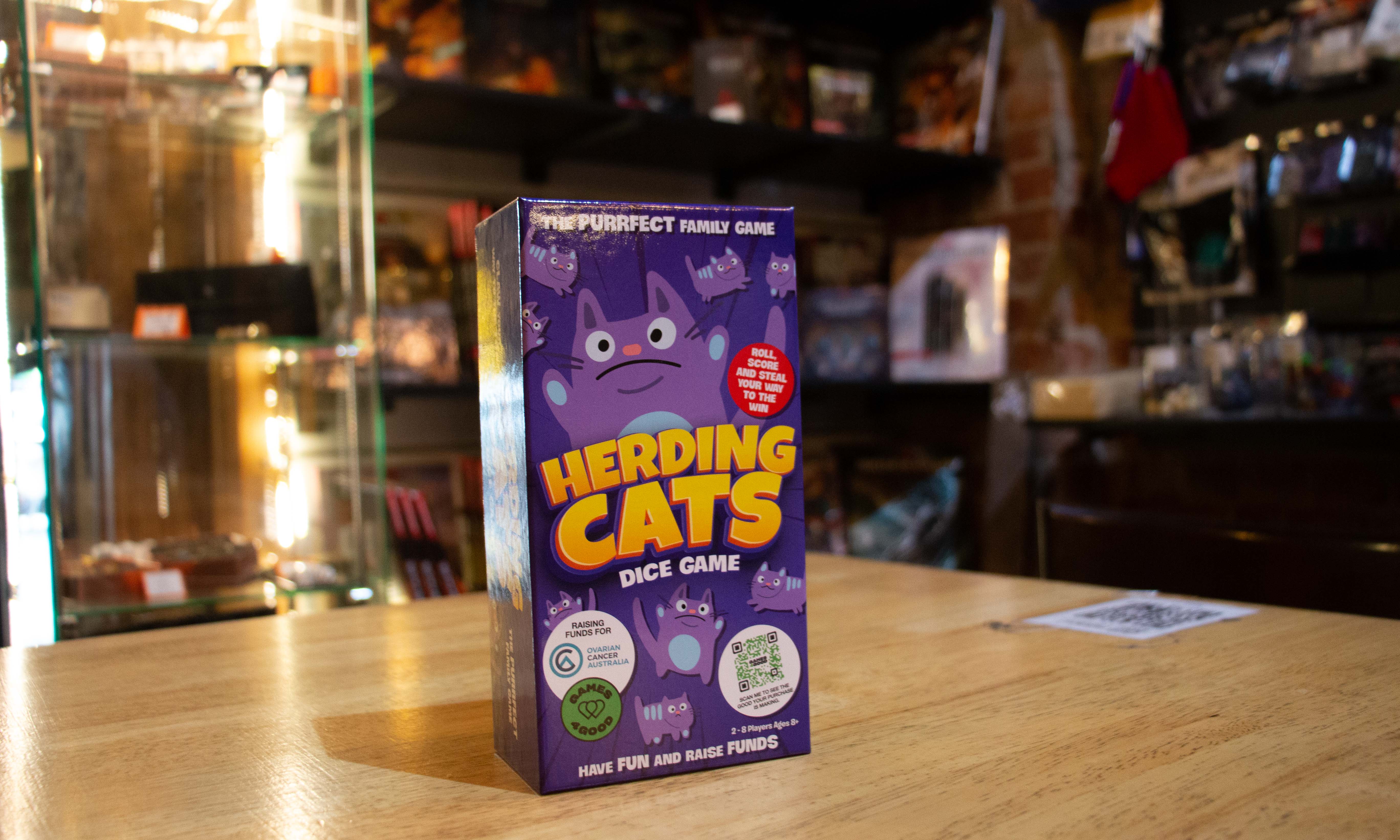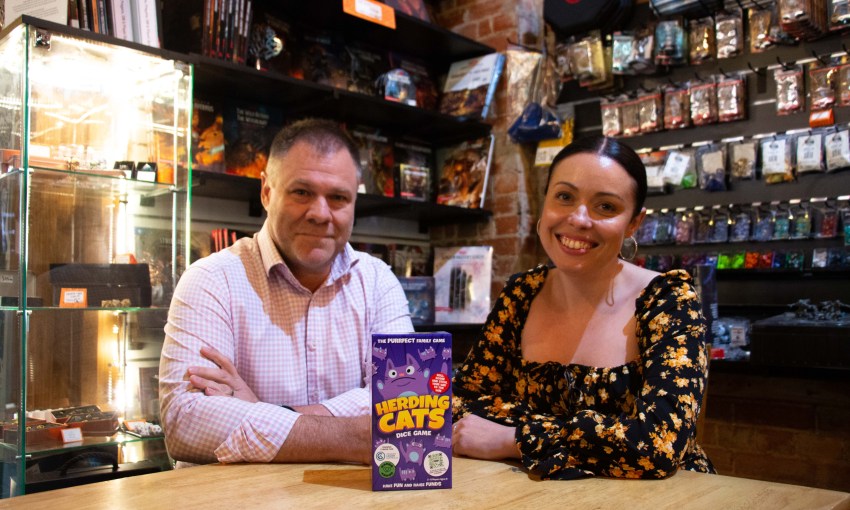Sydney-to-Adelaide advertising expert Andrew Bensley and midwife-turned-charity-founder Stephanie Malan have launched a social enterprise that makes and sells analogue board games to benefit charities.
Herding Cats is like disrupting the charitable donation model
To win at the new locally founded board game Herding Cats, a player needs to corral as many cats as they can – sometimes by means of theft.
Despite the game involving a level of trickery, the company that produced it has a charitable core.
Stephanie Malan and Andrew Bensley are the co-founders of Games4Good, a subsidiary of social enterprise Made4Good, which aims to raise money for worthy causes through board game sales.
Half of the profits generated from Herding Cats will be donated to Ovarian Cancer Australia’s (OCA) support programs.
The game was released in early November, hitting shelves at 330 Terry White Chemmart locations across the country. A quarter of the stock has been sold already, with Stephanie and Andrew hoping to generate $30,000 for OCA.
In addition to raising funds and levels of fun in households across Australia, the hope is for Herding Cats to educate the public about ovarian cancer via a QR code on the box. This is so players and purchasers can “see the good your purchase is making”, the QQ code says.
Stephanie and Andrew speak to CityMag about the recently-launched game from within King William Street board-game café The Lost Dice. Surrounded by hundreds of board games and coloured dice, Stephanie says four months ago she quit her midwifery career of 16 years. She wanted to focus on her charity, The Village Co, which supplies new mums doing it tough with a hospital bag containing hygiene products, a breast pump and access to food programs.
She also wanted to work on the recently launched social enterprise Made4Good with her new business partner, Andrew, who brings a savvy business nous to the operation.
Andrew, whose CV includes time working with Clemenger BBDO, Jamshop and other creative advertising agencies, moved into charity work after a lengthy career in marketing due to feeling disenchanted with the lack of transparency he’s experienced at the cash register of major retailers.
“I’d walk away having rounded up [the price for a charitable donation] going, ‘I don’t know who I’ve given to’,” he tells CityMag.
“I don’t know what percentage of that money that’s going to them and what’s the outcome of that initiative.
“For me, I thought it’d be great if there was a cause that people could give to and there was transparency, that you actually brought them along the journey and consequentially fulfilment.”
Instead, Games4Good’s model shares the cost of the donation with the retailer (Terry White Chemmart in this instance), rather than asking the customer to pitch in or round up.
“We’d like to think that we’re sort of disrupting the donor model,” Andrew explains.
“Everyone’s coming on board on the basis of going, ‘Okay, well, then everything gets reduced over here it maximises everything over here’.
“[It’s] by putting a percentage of profits on everyday transactions, even with Coffee4Good,” Andrew says, referencing another arm of Made4Good dedicated to caffeinated beverages.

Herding Cats, where the aim of the game is to collect felines
In 2021, the pair launched their first pilot board game, Jinx, available for purchase at 30 Terry White Chemmarts across South Australia. The “fast-paced party game” generated $45,000 for The Village Co – a coup for the charity and social enterprise.
Transparency is at the core of their business, even dating back to Jinx.
“It was Steph saying how many bags [the donated money] fulfils for donations where we thought, that’s where the core commitment is: to know that when I’m buying a game, I’m actually hoping to contribute to a bag that gets donated, not just to the wages within the overarching structure that trickles down,” Andrew says.
At present, the pair are attempting to become a B-Corp, meaning at least 50 per cent of sales must go towards a charity or non-for-profit.
Because of this tilt towards maximising profit, the games are manufactured in China. Andrew is aware of the optics of making an ethical product with the possibility of it being made in less-than-ethical conditions. But, he asserts Games4Good has “strong ties” with Fantastic Factory – an international toy and board game brand – which sent through a certification of safe overseas working conditions.
“That would have contradicted everything, if you turn around and go, ‘Who cares over there?’,” Andrew says.
Domestically, the pair are leveraging the reputation of Terry White Chemmart to legitimise their business and selected charities. They are also riding the coattails of the surging nostalgia for analogue board games.
As a father, Andrew says he feels this personally. His family owns a rustic place down south where sometimes television reception is shaky and the wind bellows – but there’s a cupboard full of board games.
“When you leave the room and you hear your children having a laugh and engaging with each other, that’s what parenting should be about, little moments like that,” he says.
View this post on Instagram




